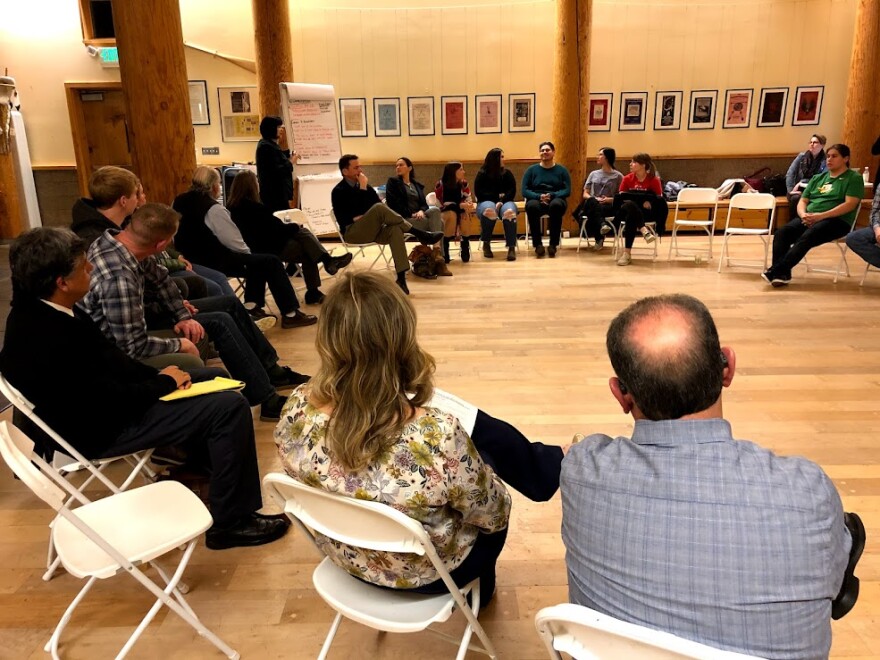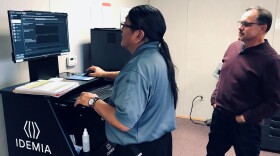An effort to improve response to reports of Missing and Murdered Indigenous People (MMIP) in Oregon is underway in the state legislature.
State Representative Tawna Sanchez is building on HB 2625, a 2019 bill she co-sponsored that created talking sessions between tribal communities and state agencies, including the Oregon State Police.
“They were not taking people seriously,” Sanchez told KLCC. “They were assuming that some things that people knew on the rez or in the community was a murder. Yet they were looking at it as possibly a suicide, or not taking it seriously. Because that person may have struggled with addictions or may have struggled with mental health issues, law enforcement just would not investigate or do anything about it.”
While the bill became law and a series of statewide talking sessions were scheduled throughout 2020, the COVID-19 pandemic disrupted the in-person meetings just a few months into the campaign. However, Sanchez says communication continued with all parties, which led to improved training and a tribal liaison in the OSP.

Now, Sanchez has rolled out HB 3198, which aims to have Oregon’s nine federally-recognized tribes and urban communities partner up with another state agency.
“It's asking that we put a sort of intervention kind of situation in the Oregon Health Authority,” Sanchez said. “They've already got established prevention models that they've used, they already have the ability to get out to the community. They already have the ability to bring folks into that thought process of, ‘How do we fix this?’”
Last summer, the Federal Communications Commission approved the establishment of a new alert system for missing and endangered people (MEP) that would launch over wireless phones, TV, and radio. It’s expected to help Native American tribes spread awareness of missing members. The FCC said that in 2023, more than 188,000 people disappeared who fell outside the criteria for AMBER Alerts.

Sanchez wants a system in place with dedicated OHA staff who – under the current language of HB3198 - will:
(1)Provide victim services, outreach, education and prevention services related to missing and murdered indigenous people.
(2) Collaborate with and support the development of interagency agreements with tribal governments, native-led organizations, local, state and federal law enforcement agencies and community leaders providing services related to missing and murdered indigenous people.
(3) Collaborate with partners to develop and maintain data on missing and murdered indigenous people in this state to identify patterns and inform targeted health interventions and violence prevention programs.
(4) Collaborate with representatives of the nine federally recognized tribes in Oregon, community-based organizations and urban-based American Indian and Alaska Native populations to implement community education programs and support youth engagement initiatives to reduce vulnerabilities that disproportionately impact indigenous people.
(5) Strengthen partnerships between law enforcement and tribal and urban American Indian and Alaska Native communities.
“People want more response, and even despite getting a tribal liaison in OSP, that's not really solved the problem,” said Sanchez. “Something needs to happen when someone goes missing and it can't be just a community event, or a community issue that people respond via Facebook or text messages or sending out the alerts. It has to be more coordinated."
The bill is currently in front of the legislature’s Ways and Means Committee, which Sanchez co-chairs, with an estimated price tag of approximately $500,000 per year. She said she’s concerned about whether federal funds could be tapped, given the uncertainty about the future of federal spending.
Copyright 2025, KLCC.










